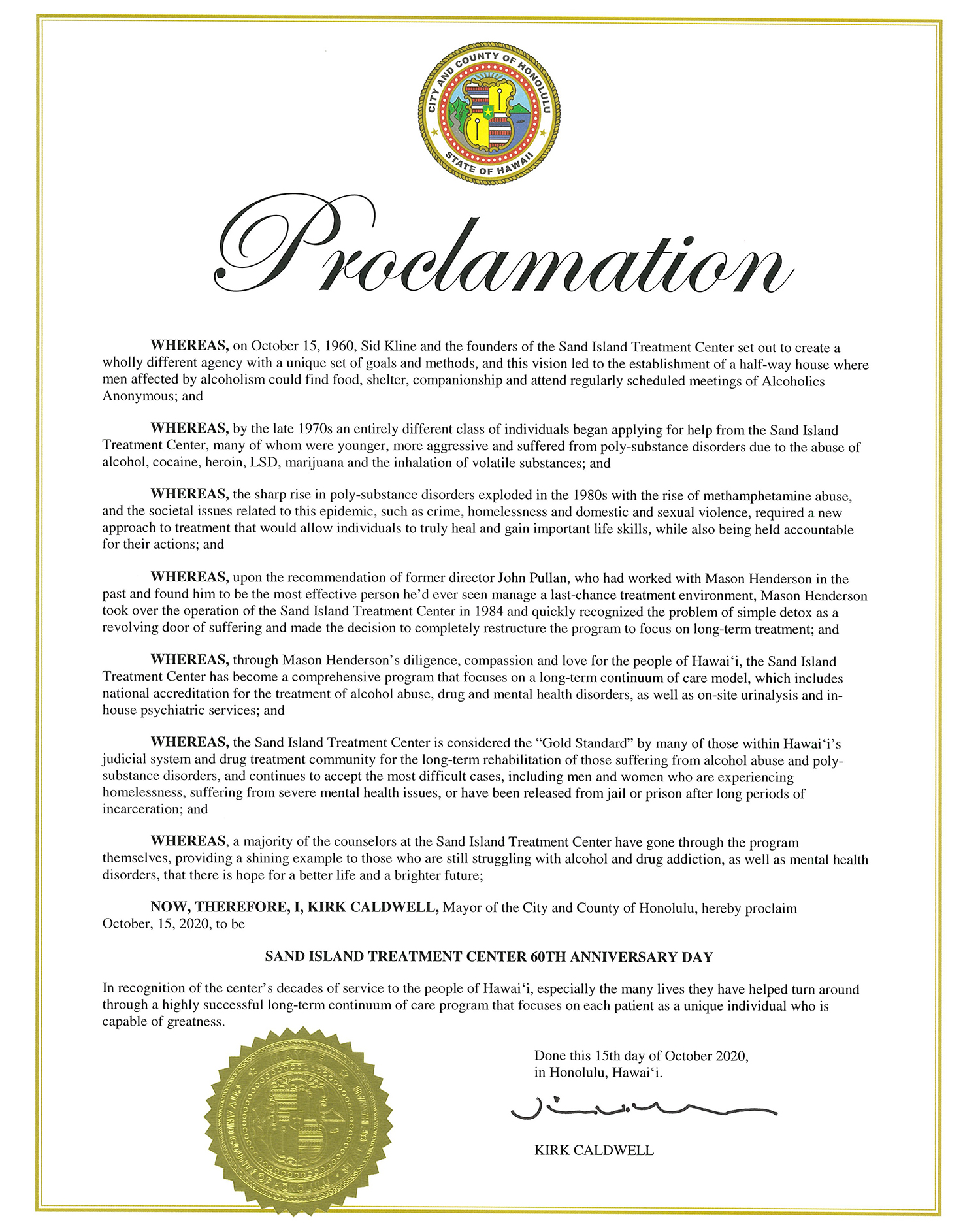About Us
Who We Are
When triaging clients for admittance to SITC, we ask ourselves which other programs might help this person. When the answer is “none,” we know they belong with us. Our treatment process is considered the “gold standard” by countless members of the judicial system and drug treatment community who have seen our results.
Our goals for our clients are
- Sustained abstinence from alcohol and/or drug use
- Elimination of repeat criminal behavior and incarceration
- Successful reintegration into mainstream community living/independent living
- Management of co-occurring symptoms and linkage with available community resources
We are open seven days a week, 24 hours per day.
Our clients are adults with substance abuse dependency issues and/or co-occurring disorders often characterized as having chaotic, non-supportive and often abusive interpersonal relationships, extensive treatment or substance abuse histories, sporadic work and educational experience, and an anti-social value system.
The residential treatment program is equipped to address the needs of special populations groups, including aging and older adults, pregnant women, persons with developmental disabilities, persons with HIV/AIDS, IV drug users, DUI offenders, sexual offenders, and substance abuse offenders. Priority populations are pregnant and post-partum women and IV drug users. If Sand Island cannot provide the continuum of services necessary to address an individual’s optimum quality of treatment outcome, we assist that person in finding suitable services.
Accreditations
SITC is proud of our accreditations from numerous local, national, and international organizations, recognizing the excellence of our work and our long-standing success in the communities we serve.
CARF is an independent nonprofit that provides accreditation services worldwide at the request of health and human services providers. The accreditation process is rigorous, including extensive reporting followed by an exhaustive in-person, multi-day review of the facility, programs, treatment files, living conditions, administration, and more.
SITC is proud to have repeatedly received a three-year accreditation, the highest offered by CARF. In reports issued in 2010, 2013, 2016 and 2019, CARF found that the SITC program excels in its compassionate, person-centered care in all aspects of its work.
History & Mission
SITC
SITC History SITC is considered the “gold standard” by many within Hawaii’s judicial system and drug treatment community for the long-term residential rehabilitation of those suffering from multiple addictions and life struggles. The center continues to accept the most difficult cases for the treatment of drug and alcohol addiction, including men and women who are experiencing homelessness and/or severe mental health disorders, as well as those who have been released from jail or prison, or face the possibility of incarceration.
By the late 1970s, the center recognized there were others in need of treatment, many of whom were younger, more aggressive, and suffered from poly-substance disorders related to alcohol, cocaine, heroin, and other volatile substances. In the 1980s, the need to treat those who were suffering grew even more with the rise of methamphetamine abuse, related criminal activity, homelessness, domestic violence, and sexual abuse.
The original founders recognized they needed new leadership better equipped to handle these rapidly developing issues and provide rehabilitation to the people of Hawaii who were suffering so deeply. At the recommendation of former director John Pullan, they hired Mason Henderson, someone known for his ability to manage last-chance treatment services.
Henderson took over the operation of SITC in 1984, recognizing that without wrap-around services that addressed many of the other related conditions clients were experiencing, detox was a revolving door. Under his leadership, the program switched to a long-term continuum of care model that focuses on alcohol abuse, drug addiction, mental health disorders, in-house medical and psychiatric services, in-house urinalysis, and individual and group counseling.
SITC is considered the “gold standard” by many within Hawaii’s judicial system and drug treatment community for the long-term rehabilitation of those suffering from multiple addictions and life struggles. The center continues to accept the most difficult cases for the treatment of drug and alcohol addiction, including men and women who are experiencing homelessness and/or severe mental health disorders, as well as those who have been released from jail or prison, or face the possibility of incarceration.
Most of the center’s counseling staff are graduates of the program themselves, people who have seen rock bottom and know personally how lives can be restored. They serve as a beacon of hope for the clients they work with every day.
Testimonials
Substance and Alcohol Abuse in Hawaii
The Sand Island Treatment Center agrees with prominent Hawaii-based organizations that the social ecological model of treatment — conceptualizing health broadly and including mental, physical, and social well-being — is a cornerstone of treatment.
That’s why our program is unique, with a long term residential continuum of care that addresses not just the addiction, but the numerous underlying conditions that our clients struggle with. Without working through mental and physical health concerns, re-establishing social skills and support systems, and finding meaning in their clean and sober life, relapse and recidivism is much more likely. At SITC, that’s not acceptable. That’s not a solution. Instead, it’s a revolving door.







